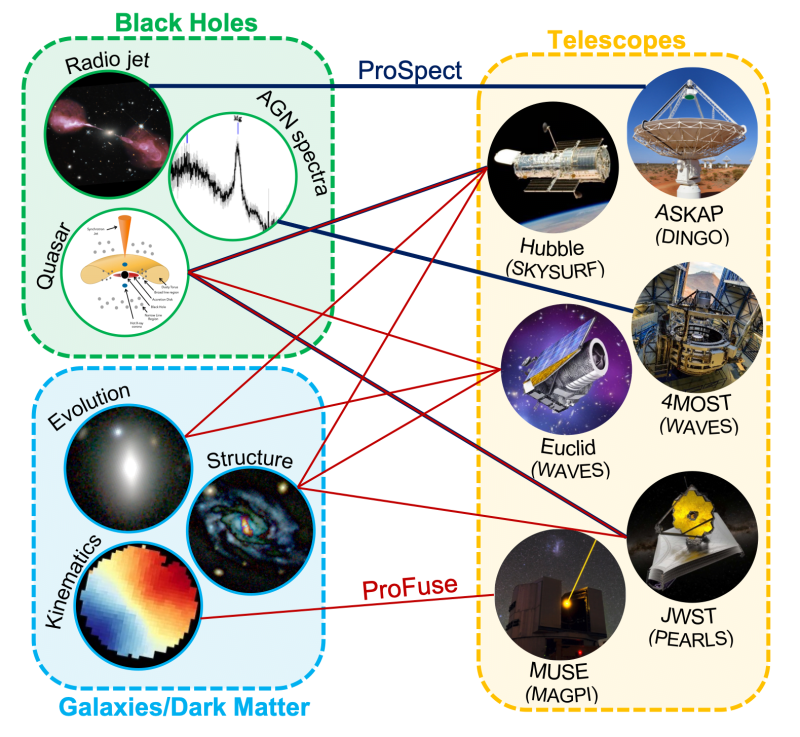Higher Degree by Research Application Portal
| Title | Illuminating Dark Matter and Black Holes |
|---|---|
| Supervisor | Dr Aaron Robotham |
| Dr Sabine Bellstedt | |
| Course | Doctor of Philosophy |
| Keywords | Dark matter |
| Black holes | |
| Categories | Astronomy |
| Research area | Physical Sciences |
| Project description | Two of the biggest mysteries of the Universe are the roles supermassive black holes and dark matter have in shutting down star formation. These project will combine the best possible datasets and in-house modelling software to illuminate the darkness of our understanding. THE PHYSICS To unpick these processes our team at UWA has over the last 5 years developed a suite of bespoke tools that can analyse modern multiwavelength data in unique ways. The main theoretical modelling is undertaken with ProSpect (which converts a light spectrum into physical processes) and ProFuse (which applies ProSpect to spatial data, allowing us to unravel how physical processes change inside a galaxy). THE DATA Through your potential supervisors, you will have access to the most exciting survey facilities in astronomy: in the X-ray E-Rosita, in the optical HST, the infrared Euclid and JWST, in the radio ASKAP and MeerKat. Each of these wavelengths uncovers different physical processes in galaxies which we must extract through theoretical modelling. THE PROJECTS The projects here will involve application of ProSpect and ProFuse to new data arriving from the most exciting facilities in the world. Being at the fulcrum of these efforts, you will be leveraging new insights into how black holes and dark matter shape the Universe we observe today. Given the novelty of these dataset combinations, new extensions to ProSpect and ProFuse will be necessary for some of the proposed projects. In particular, we do not yet have a self-consistent model linking galaxy physics to black hole radio jets. We also cannot produce all the types of optical emission we observe in black hole powered active galactic nuclei (AGN). |
| Opportunity status | Open |
| Funding source | RTP |
| School | Graduate Research School |
| Specific project requirement | Expertise in astronomy. Some computer programming knowledge (any language is appropriate, but the project team mostly use R and Python). |
| Course type | Doctorates |
| Description | The Doctor of Philosophy (PhD) is a program of independent, supervised research that is assessed solely on the basis of a thesis, sometimes including a creative work component, that is examined externally. The work presented for a PhD must be a substantial and original contribution to scholarship, demonstrating mastery of the subject of interest as well as an advance in that field of knowledge. Visit the course webpage for full details of this course including admission requirements, course rules and the relevant CRICOS code/s. |
| Duration | 4 years |
Guidance
Astronomy.
Standard RTP round (either domestic or international). Link is here: https://www.uwa.edu.au/study/research/research-scholarships
Standard RTP round (either domestic or international).
Completed degree. Have undertaken a major research project as a component of this (50% of the final year normally).
